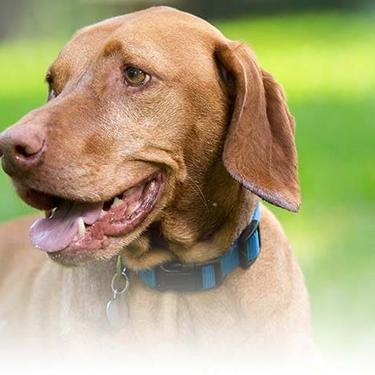
-
Find the right food for your pet
Take this quiz to see which food may be the best for your furry friend.
Find the right food for your pet
Take this quiz to see which food may be the best for your furry friend.
Featured products
 Adult Healthy Cuisine Roasted Chicken, Carrots & Spinach Stew Dog Food
Adult Healthy Cuisine Roasted Chicken, Carrots & Spinach Stew Dog FoodDelicious roasted chicken paired with tender vegetables in a succulent stew
Shop Now Adult 7+ Perfect Digestion Chicken, Whole Oats & Brown Rice Recipe Dog Food
Adult 7+ Perfect Digestion Chicken, Whole Oats & Brown Rice Recipe Dog FoodScience Diet's breakthrough nutrition supports ultimate digestive well-being & healthy microbiome for dogs age 7+
Shop Now Small & Mini Savory Stew with Chicken & Vegetables Dog Food
Small & Mini Savory Stew with Chicken & Vegetables Dog FoodA delicious complement to the nutrition of Science Diet Small & Mini 7+ dog food
Shop NowFeatured products
 Adult Savory Entrée Can Variety Pack Cat Food
Adult Savory Entrée Can Variety Pack Cat FoodPrecisely balanced nutrition with the delicious taste of savory minced chicken to help fuel the energy needs of cats during the prime of their life
Shop Now Adult 7+ Tender Tuna Dinner Cat Food
Adult 7+ Tender Tuna Dinner Cat FoodWith delicious chunks in a decadent gravy
Shop Now Adult 7+ Senior Vitality Chicken & Vegetable Stew Cat Food
Adult 7+ Senior Vitality Chicken & Vegetable Stew Cat FoodImproves Everyday Ability to Get Up & Go
Shop Now -
Dog
- Dog Tips & Articles
-
Health Category
- Weight
- Food & Environmental Sensitivities
- Urinary
- Digestive
- Joint
- Kidney
-
Life Stage
- Puppy Nutrition
- Adult Nutrition
- Senior Nutrition
Cat
- Cat Tips & Articles
-
Health Category
- Weight
- Skin & Food Sensitivities
- Urinary
- Digestive
- Kidney
-
Life Stage
- Kitten Nutrition
- Adult Nutrition
Featured articles
 Do Dogs and Cats have Belly Buttons?
Do Dogs and Cats have Belly Buttons?Learn whether cats & dogs have belly buttons like humans, what the function is, and if there are any health concerns associated with it.
Read More Does My Pet Hate Me?
Does My Pet Hate Me?Learn tips for bonding with your pet if you've ever thought, 'My dog doesn't like me, or 'Why do I have a standoffish cat?'
Read More Why Are Dogs and Cats So Cute?
Why Are Dogs and Cats So Cute?If waggy puppy dog tails and furry kitten yawns make you swoon, you're not alone. Why are cats so cute? And, dogs too! Let's find out!
Read More -


Is your dog twitching while sleeping? Chances are they're just having some interesting dreams. However, there are actually a few other explanations for a twitching dog. Most of the time twitching is just normal doggy behavior, but some cases may be due to factors like stress, advanced age or an underlying health condition.
Here's everything you need to know about dog twitching, including when you should take your pup to see a veterinarian.
Why Is My Dog Twitching?
Dog twitching is an involuntary muscle spasm that occurs rapidly and suddenly in almost any part of a pup's body. Twitching typically happens in the back legs, usually while your dog is sleeping.
Common reasons for dog twitching include:
- Active dreaming
- Growth development
- Anxiety disorders
- Outside stimulation, such as fireworks, thunderstorms or encounters with strangers
- Health conditions, like epilepsy or diabetes
- Muscle stiffness
- Arthritis
According to Labrador Training HQ, if your dog has been exposed to certain toxins, such as chocolate or laundry detergent, the poisoning from those toxins may cause your dog to twitch as well. Age may also account for a twitching dog. Puppies, especially newborns, twitch often because it's part of their "healthy development," according to PetHelpful. Puppies are especially active dreamers because they're strengthening their muscles and their brains.
Do Dogs Twitch While Dreaming?
A dog twitching while sleeping is a good indicator that they're deep in snoozeland. Dogs have the same sleep stages as humans, including short-wave sleep and rapid eye movement. Oftentimes, your dog will look like they're kicking the air when they're dreaming.
On average, dogs sleep for about 12 to 14 hours a day. During the sleep stages, it's common and normal for a dog to twitch their tail or their entire body — they may even bark. Think of this as your dog communicating in their sleep.
Dogs also twitch during nightmares or night terrors, Tufts University says. Though this can be difficult to watch, they suggest not waking your dog unless it's clear that they're experiencing distress. If you need to wake them, gently call their name until they come to. Do not touch a dog that's having night terrors or you'll risk getting bitten.


Tasty Tips
Do Dogs Twitch While They're Awake?
A dog can experience rapid muscle spasms both at night and during their waking hours. In healthy dogs, a twitch once in a while is no cause for concern, especially if they're a senior dog. Environmental or situational stimulators, such as thunder or strangers in the home, can cause a dog to twitch while they're awake. If the twitching stops when the stimulus leaves, your pup was probably just reacting to the situation at hand.
Some dogs twitch as a nervous habit, just like their human counterparts, or if they're experiencing separation anxiety. If your dog has general anxiety, they may also twitch or tremble. By speaking with your vet, you can find out how to better manage these conditions and make your pup feel more comfortable.
When Should You Call the Vet?
If your dog is experiencing full-body tremors that last longer than a quick spasm or that make their body go rigid, they may be having a seizure. In these scenarios, you should immediately call an emergency vet. Other signs of a seizure include:
- Vomiting
- Foaming at the mouth
- Passing a bowel movement
- Urinating
Prior to having a seizure your dog may seem anxious or restless. During a seizure, your dog may also keep their eyes wide open, whether they're asleep or awake, and exhibit a "deer in headlights" look, says Pads and Paws, and they will often act confused or dazed after the event. It's also important to recognize that seizures don't always have a classic appearance. Sometimes they can manifest as focal tics or tremors; therefore, looking for other indications of seizure activity, such as the described behavioral changes, can be helpful in deciding whether or not your dog has experienced a seizure versus a normal muscle twitch. If you're ever suspicious of seizure activity, you should contact your vet right away for guidance.
Significant and extended periods of twitching can be symptomatic of diabetes, hypothermia, kidney and liver issues or poison ingestion, writes vet Justine A. Lee for Pet Health Network — all of which will require vet treatment. Common toxins that your dog may ingest include rodent poisons, medications and human foods that aren't safe for pets. If you suspect poisoning, call an emergency vet right away.
More often than not, your furry friend is twitching in their sleep because they're enjoying a good dream. But if you're ever in doubt, it's always a good move to give your vet a call.


Christine O'Brien is a writer, mom, and long-time cat parent whose two Russian Blues rule the house. Her work also appears in Care.com, What to Expect, and Fit Pregnancy, where she writes about pets, pregnancy, and family life. Find and follow her on Instagram and Twitter @brovelliobrien.
Related products

Science Diet's breakthrough nutrition supports ultimate digestive well-being & healthy microbiome for dogs age 7+

Delicious braised beef paired with tender vegetables in a succulent stew

A delicious complement to the nutrition of Science Diet Small & Mini 7+ dog food

Delicious roasted chicken paired with tender vegetables in a succulent stew
Related articles

Large and giant breed puppies have different nutritional needs than other dogs. Learn how to provide the special care they need to grow up big and strong.

Your dog's coat and skin are a big part of your dog's overall health. Ensure you keep your dog's coat healthy, by following these simple tips.

Hill's Science Diet Small & Toy Breed dog foods are designed to meet the nutritional needs for your small dog at every life stage. Learn more here.

Learn about choosing the right food for your mature or older dog, ensuring he receives the correct balance of nutrition.

Put your dog on a diet without them knowing
Our low calorie formula helps you control your dog's weight. It's packed with high-quality protein for building lean muscles, and made with purposeful ingredients for a flavorful, nutritious meal. Clinically proven antioxidants, Vitamin C+E, help promote a healthy immune system.
Put your dog on a diet without them knowing
Our low calorie formula helps you control your dog's weight. It's packed with high-quality protein for building lean muscles, and made with purposeful ingredients for a flavorful, nutritious meal. Clinically proven antioxidants, Vitamin C+E, help promote a healthy immune system.

